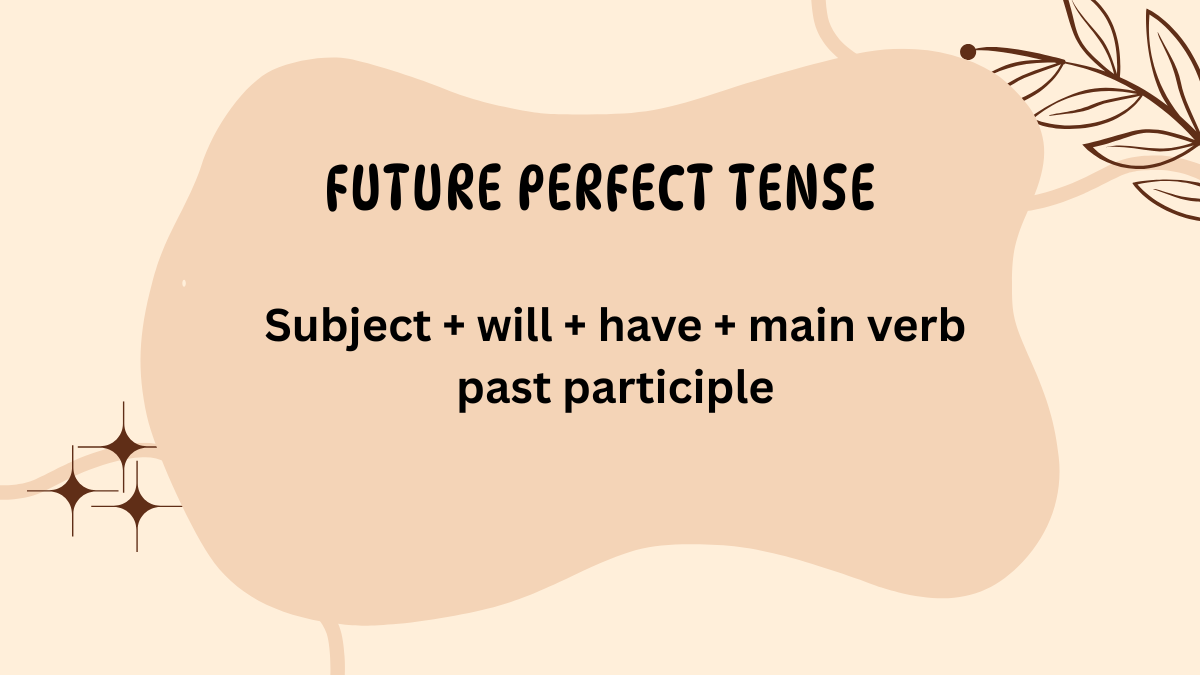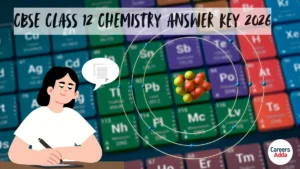The future perfect tense can be used to describe actions or events that will take place within a particular period of time in the future. In other words, when describing an action that will be finished before a certain future date, the future perfect tense is utilised. It looks ahead to a future moment and then back at an action that will have been completed by then. The following is how the future perfect tense is created:
Subject + will + have + main verb past participle
The future perfect tense refers to an action that has a finished time or date. Several definitions of the future perfect tense from several dictionaries are provided below.
| Future Continuous Tense | All Future Tense |
Future Perfect Tense Definition
Definition of the Future Perfect Tense according to the different dictionaries: According to the Cambridge Dictionary, the definition of the future perfect tense is “the form of the verb that is used to show that an action will have been completed by a given time” is the future perfect tense.
The future perfect tense is described as one that “denotes a tense of verbs representing an action that will have been completed by a given time” in the Collins Dictionary.
The future perfect tense, which denotes the completion of an action by a specific time in the future, is defined by the Merriam-Webster Dictionary as a tense “related to, or constituting a verb tense that is typically formed in English with will have and shall have.”
Future Perfect Tense Formula
Here is the explanation of how to use the future perfect tense formula and what is the Structure of the Future Perfect Tense. What will help you is understanding the basic formula you can use to create future perfect tense sentences. The future perfect tense formula is given here.
Subject + Helping verbs (will + have) + third form of the verb + object.
Analysis of sentence construction in the positive, negative, interrogative, and negative interrogative formats is also important, in addition to knowing the formula.
Future Perfect Tense Structure
- Positive/Affirmative: Subject + Helping verbs (will + have) + third form of the verb + object.
- Negative: Subject + will + not + have + third form of the verb + object.
- Interrogaive: Will+ Subject + have + third form of the verb + object?
- Negative Interrogative: Will+ Subject + not + have + third form of the verb + object?
Future Perfect Tense Examples
Positive/Affirmative: Subject + Helping verbs (will + have) + third form of the verb + object.
- I will have done this work before she comes.
- She will have slept before completing the task.
- He will have dressed by the time you reach home.
Negative: Subject + will + not + have + third form of the verb + object.
- I will not have done this work before she comes.
- She will not have slept before completing the task.
- He will not have dressed by the time you reach home.
Interrogaive: Will+ Subject + have + third form of the verb + object?
- Will I have done this work before she comes?
- Will she have slept before completing the task?
- Will he have dressed by the time you reach home?
Negative Interrogative: Will+ Subject + not + have + third form of the verb + object?
- Will I not have done this work before she comes?
- Will she not have slept before completing the task?
- Will he not have dressed by the time you reach home?
Points to keep in mind while using Future Perfect Tense
Always keep in mind that the future perfect tense can be created by combining the past participle of the main verb with the two auxiliary verbs will and have. As an example, they will have arrived at the station by eight in the morning. As you may already know, the verb can also be changed into its past participle by adding the suffix “-ed.” This isn’t always the case, though. In the past tense, irregular verbs have varied spelling rules.
When to use Future Perfect Tense in Sentences?
When discussing, you can use the future perfect tense:
- A course of action or occurrence that will end before a specific future time.
- Something that will happen or end before another thing in the future.
- It can also be used to show certainty regarding an event that will take place at a specific future period.
Difference between Simple Future Tense and Future Perfect Tense
Let;s now understand what is the difference between the Simple future tense and future perfect tense.
| Simple Future Tense | Future Perfect Tense |
| Used when you want to speak about an action or event that will take place at some time in the future. | Used when you want to speak about an action or event that will take place at a certain time in the future before another action or event. |
| Example: Daisy will reach home on Monday. | Example: Daisy will have reached home by Monday. |
Future Perfect Tense Exercise with Answer
Fill in the blanks with the right form of the future perfect tense in the following sentences:
1. Mom ______________ (cook) our favourite meal since we are going home after a really long time.
2. I think all the plants ________________ (grow) before I return.
3. Sindhu _____________ (forget – negative) anything by now.
4. __________ you ___________ (complete – interrogative) the invitations before 7 p.m.
5. He ________________ (learn) all the songs by heart before anyone else does.
6. Do you think Karl _______________ (find) all the answers to the questions you gave him by now?
7. I guess I ___________ (finish) my painting by Monday.
8. All our relatives ___________ (arrive) at the hotel in the morning.
9. ________ they ___________ (paint – negative interrogative) the house before the guests arrived?
10. We ___________________ (meet) the Principal before noon.
Check if you have used the future perfect tense correctly from the answers given below.
1. Mom will have cooked our favourite meal since we are going home after a really long time.
2. I think all the plants will have grown before I return.
3. Sindhu will not have forgotten anything by now.
4. Will you have completed the invitations before 7 p.m.
5. He will have learnt all the songs by heart before anyone else does.
6. Do you think Karl will have found all the answers to the questions you gave him by now?
7. I guess I will have finished my painting by Monday.
8. All our relatives will have arrived at the hotel in the morning.
9. Won’t they have painted the house before the guests arrived?
10. We will have met the Principal before noon.









 CBSE Class 12 Chemistry Answer Key 2026 ...
CBSE Class 12 Chemistry Answer Key 2026 ...
 CBSE Class 10 Sanskrit Question Paper 20...
CBSE Class 10 Sanskrit Question Paper 20...
 CUET PG Cut Off 2026, Expected Course wi...
CUET PG Cut Off 2026, Expected Course wi...














